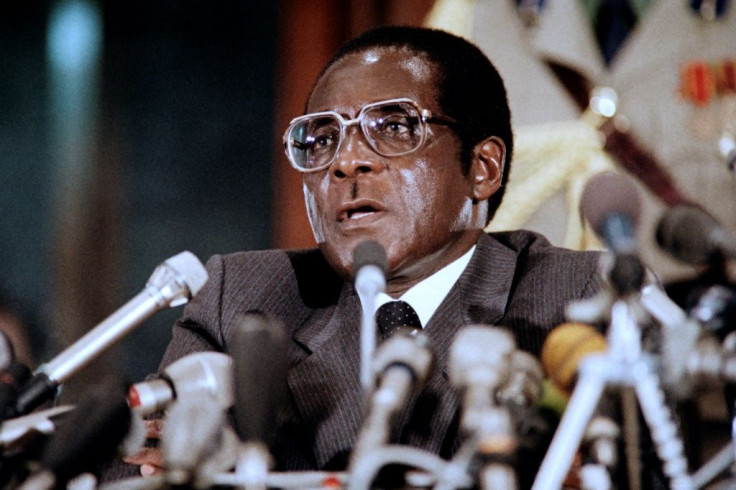Who Was Robert Mugabe? Zimbabwe Divided After Death Of Controversial Ex-President

Opinions are divided in Zimbabwe over the controversial legacy of former President Robert Mugabe, who died Friday at age 95. His supporters believe he protected the country from colonialism, while his detractors say his economic policies caused hyperinflation and high unemployment.
Mugabe died in Singapore after leaving power in 2017 because of a military coup. Having previously served as a guerilla chief, Mugabe became the Prime Minister of Zimbabwe in 1980 with the country's economy in a relatively strong state.
Zimbabwe, a country of roughly 16 million, was previously known as Rhodesia. The land was known for its abundant resources. After World War II, the country saw an economic boom and was considered the envy of Africa.
From 1964 to 1979, Rhodesia was in involved in a civil war between the British minority-ruled government and two nationalist revolutionary groups. Mugabe was the chair of one of the groups in the war, the Zimbabwe African National Union (ZANU).
Robert Mugabe's biography pic.twitter.com/NR6tEth2a1
— SABC News (@SABCNews) September 7, 2019
"You've inherited a jewel. Keep it that way," Julius Nyeyere, the President of Tanzania, told Mugabe when he first came to power. Zimbabwe was known as the "breadbasket" of Africa and had a thriving tobacco export business.
Mugabe, a former teacher, espoused Marxist views, and his party's symbol, the rooster, was used to cater to rural voters in Zimbabwe. He was largely backed by the country's Shona ethnic majority.
He sought to transform Zimbabwe into a one-party state and frequently criticized western imperialism. At the same time, Mugabe spoke with a British accent and enjoyed the country's national sport, cricket.
Mugabe implemented a policy of land reform, which seized farmlands from white owners, whose ancestors had immigrated to the country from South Africa and the U.K. This was seen as correcting racial injustice, as half of the country's arable land had been owned by the white minority.
The land reform policy ended up having catastrophic consequences in Zimbabwe, as it forced the country's agricultural output to drop, causing famine and food shortages.
In 2006, Mugabe had abandoned the Zimbabwean dollar as the country's currency in exchange for the "bearer check." The result was hyperinflation, with inflation rates reaching 500% in December 2008, the second-highest rate in recorded history after Hungary during the country's revolution in 1956.
Mugabe’s so called legacy summed up in one picture
— Trev Muchedzi (@trevmuchedzi) September 7, 2019
This note was worth around 40 US cents / R6 when last in circulation. Not even enough to buy bread pic.twitter.com/jKCuTdzPdC
In November 2017, Mugabe was removed from power by the military and was replaced as the Zimbabwean president by Emmerson Mnangagwa. Mnangagwa then won his first full term as president in the July 2018 election.
Human Rights Watch on Friday noted that Mugabe in the early 1980s ordered counterinsurgency military operations against “dissident” ex-guerrilla fighters, leading to at least "10,000 civilians and the enforced disappearances, arbitrary detention, and torture of countless others."
© Copyright IBTimes 2025. All rights reserved.





















